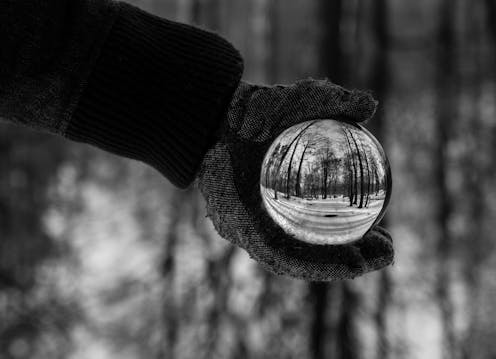Science of everyday life: 5 essential reads
- Written by Maggie Villiger, Senior Science + Technology Editor

Editor’s note: As we close the books on one year and begin a new one, Conversation editors take a look back at the stories that – for them – exemplified 2018.
One of best things about my job as a science editor is that any crazy idea I start wondering about – whether triggered by something I see on my commute, a current event that’s in the news, or best of all a conversation with my young kids – I can call up an expert and ask her or him to break it down for me, and you.
It seems like our readers enjoy this type of “I’ve always wondered … ” article too. My most-read story of the past year was by an entomologist making the case to bug-haters[1] that by killing a spider they might actually be making their homes more hospitable to insects the spider would have eaten and eliminated for them.
Below, a handful of my favorites from 2018. But curiosity isn’t bound by the calendar, so here’s to a new year of everyday science.
1. Seven pet years equals one human year?
This one came from my being a cat lover. Is my 12-year-old furry friend really (quick math, 7x12) equivalent to an 84-year-old woman? Luckily Mississippi State University’s Jesse Grady was at the ready. The 7-to-1 age equation is not quite right[2], he wrote, but “determining a pet’s ‘real’ age is actually important because it helps veterinarians like me recommend life-stage specific healthcare for our animal patients.”
2. The word you don’t know for a smell you do
Walking home as the first drops of rain fell was the genesis of this article. Texas A&M atmospheric scientist Tim Logan was the factoid guide this time. “Of course rain itself has no scent,” he wrote. “But moments before a rain event, an ‘earthy’ smell known as petrichor[3] does permeate the air.” He goes on to describe its fragrant chemical compounds and where they come from.
3. A more personal question of scent
Perhaps this says a lot about the company I keep, but not infrequently in my travels does the topic of asparagus pee come up. Sarah Coseo Markt from Harvard’s School of Public Health did the honors on this one, explaining that after you eat asparagus, your body breaks down one of its constituents into two compounds that “when voided from the body … become foul-smelling gas, wafting up from your asparagus pee[4].” And in the event you have no idea what we’re talking about, Sarah cautions, “just because you don’t smell it doesn’t mean you’re not making it.”
4. Even blue blood readers have red blood
Here’s an example of corrective journalism. The record had to be set straight after I’d read a book to my children that suggested human blood is blue as it courses through your veins. “The bluish color of veins is only an optical illusion,” wrote University at Albany chemists Marisia Fikiet and Igor Lednev[5]. They explained the basics of hemoglobin, the iron-rich molecule that carries oxygen around your body, and why blood always has that distinctive red color[6] – in humans, anyway.
5. Please switch to Airplane Mode
Has any air traveler not wondered if forgetting to switch off your phone would bring down the jet? Penn State engineer Sven Bilén[7] explained why talking on your cellphone at 40,000 feet is more of service issue than a safety one[8] these days.
And if there’s anything that you’ve been wondering about … let me know! I have academic experts across the country on speed dial and at the ready.
References
- ^ entomologist making the case to bug-haters (theconversation.com)
- ^ 7-to-1 age equation is not quite right (theconversation.com)
- ^ ‘earthy’ smell known as petrichor (theconversation.com)
- ^ foul-smelling gas, wafting up from your asparagus pee (theconversation.com)
- ^ Igor Lednev (scholar.google.com)
- ^ blood always has that distinctive red color (theconversation.com)
- ^ Sven Bilén (scholar.google.com)
- ^ more of service issue than a safety one (theconversation.com)
Authors: Maggie Villiger, Senior Science + Technology Editor
Read more http://theconversation.com/science-of-everyday-life-5-essential-reads-109126

